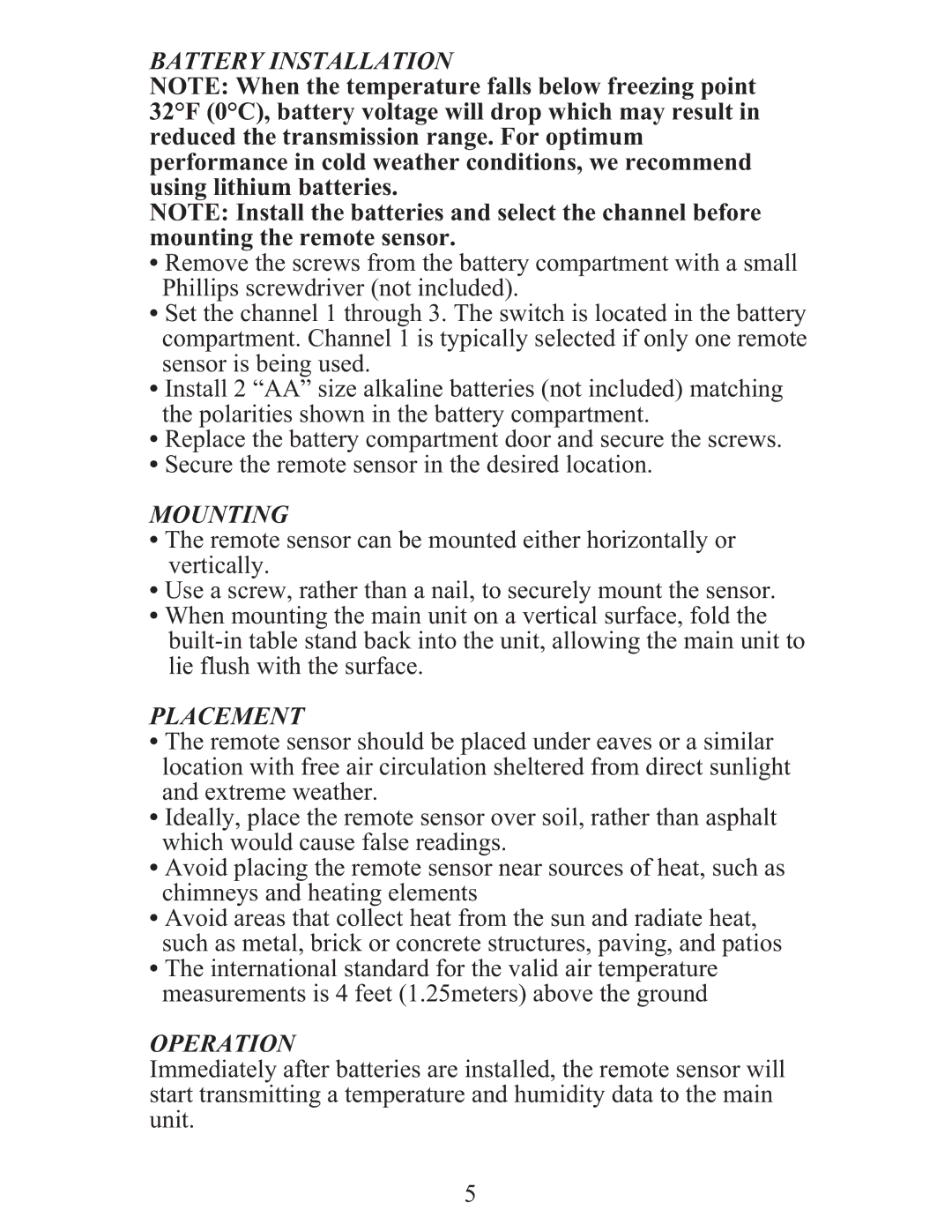BATTERY INSTALLATION
NOTE: When the temperature falls below freezing point 32°F (0°C), battery voltage will drop which may result in reduced the transmission range. For optimum performance in cold weather conditions, we recommend using lithium batteries.
NOTE: Install the batteries and select the channel before mounting the remote sensor.
•Remove the screws from the battery compartment with a small Phillips screwdriver (not included).
•Set the channel 1 through 3. The switch is located in the battery compartment. Channel 1 is typically selected if only one remote sensor is being used.
•Install 2 “AA” size alkaline batteries (not included) matching the polarities shown in the battery compartment.
•Replace the battery compartment door and secure the screws.
•Secure the remote sensor in the desired location.
MOUNTING
•The remote sensor can be mounted either horizontally or vertically.
•Use a screw, rather than a nail, to securely mount the sensor.
•When mounting the main unit on a vertical surface, fold the
PLACEMENT
•The remote sensor should be placed under eaves or a similar location with free air circulation sheltered from direct sunlight and extreme weather.
•Ideally, place the remote sensor over soil, rather than asphalt which would cause false readings.
•Avoid placing the remote sensor near sources of heat, such as chimneys and heating elements
•Avoid areas that collect heat from the sun and radiate heat, such as metal, brick or concrete structures, paving, and patios
•The international standard for the valid air temperature measurements is 4 feet (1.25meters) above the ground
OPERATION
Immediately after batteries are installed, the remote sensor will start transmitting a temperature and humidity data to the main unit.
5
